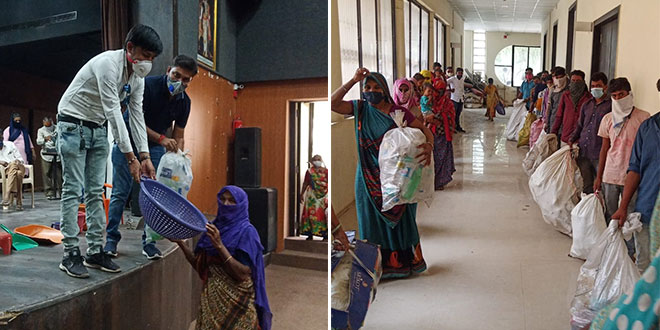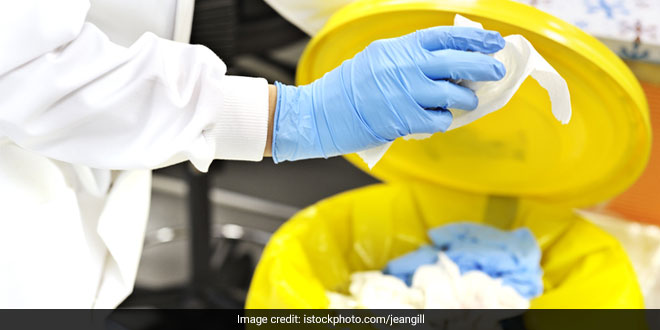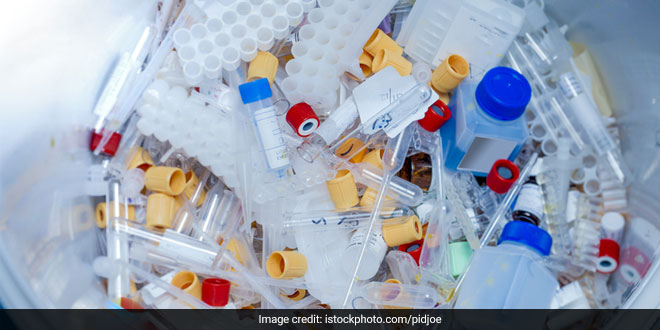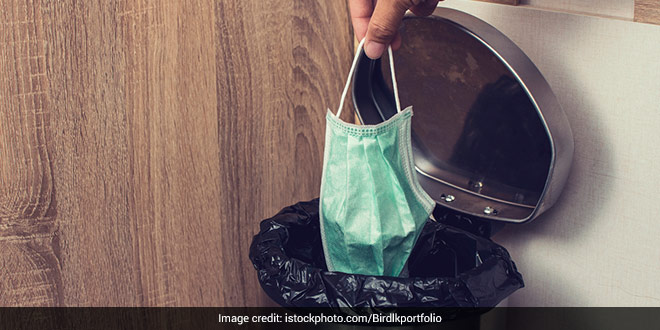
According to a Central Pollution Control Board (CPCB) report, India generates about 101 Metric Tonnes per day (MT/day) of COVID-19 related bio-medical waste

Gujarat’s Swachh Bharat Mission-Urban has launched a pilot project in the district Morbi to raise awareness about waste segregation by offering household items of everyday use...

To ensure a clean and green environment and prevent the spread of infectious diseases like COVID-19, in Punjab a bar code system is being used for...

To ensure that the biomedical waste generated due to the use of gloves and masks during the COVID-19 pandemic is not mixed with the general solid...

Central Pollution Control Board told the National Green Tribunal that there is no Common Biomedical Waste Treatment Facilities in Andaman and Nicobar, Arunachal Pradesh, Goa, Lakshadweep,...

Municipal corporations in Delhi are responsible for collecting COVID-19 bio-medical waste from houses of patients undergoing home quarantine which goes to the waste-to-energy plants for incineration

As per the report, Global E-waste Monitor 2020, China, with 10.1 million tonnes, was the biggest contributor to e-waste, and the United States was second with...

Panchgani, a hill station in Maharashtra has modified its waste management practices by adding a separate bin for bio-medical hazardous waste to the wet and dry...

World Environment Day 2020 calls for action to stop the degradation of the natural world, which according to experts, is accelerating with the increased use of...

This Menstrual Hygiene Day, members of SWaCH Pune, a cooperative of waste collectors and waste pickers would like to bring the attention of people on the...

According to the guidelines issued by the Central Pollution Control Board, healthcare facilities having isolation wards for COVID-19 patients need to keep separate colour coded bins...

The daily waste generation of Ahmedabad has reduced by almost 40 percent as people stay home due to the 21-day lockdown announced by the government to...